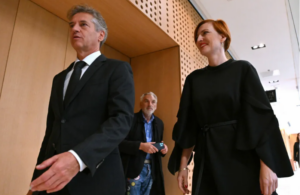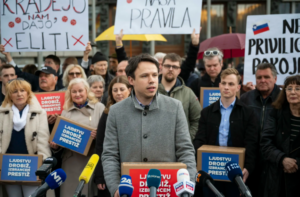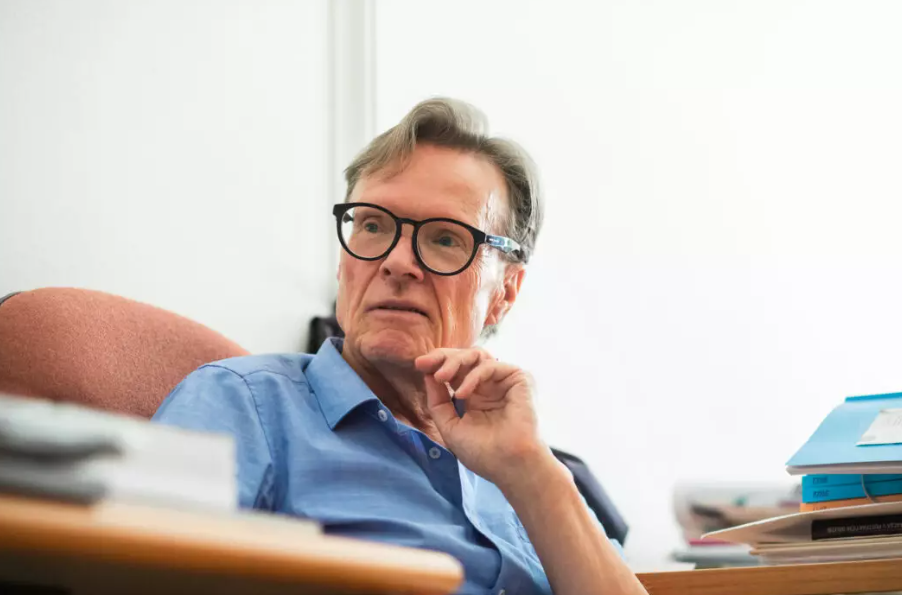“This is certainly a call against democracy,” said Supreme Court Judge Jan Zobec, who pointed out that the Golob government’s call for a boycott of the upcoming referendum was “contrary to the spirit of constitutionality and democracy,” and that such actions should prompt the people to do the opposite and to stop electing parties with such an undemocratic outlook.
Prime Minister Robert Golob announced that the ruling Freedom Movement party (Gibanje Svoboda) would join the referendum campaign and call for a boycott of the referendum on the extraordinary pension supplements for artists. This call is also supported by the Minister of Culture, Asta Vrečko of the Left party (Levica), while the Social Democrats party (Socialni demokrati – SD) believes that calls for a boycott are not appropriate for politics. On the other hand, the opposition Slovenian Democratic Party (Slovenska demokratska stranka – SDS) and the New Slovenia party (Nova Slovenija – NSi) believe that the call for a boycott is highly inappropriate. The coalition parties expect the referendum on the 11th of May to fail due to low voter turnout, but Supreme Court Judge Zobec says the opposite should be the reaction of the people – we should make sure that there is an even higher turnout.
People should respond and take part in the referendum
“Such actions are not sanctioned by law – instead, they are sanctioned by the will of the people, which is expressed in such a way that people then go to the referendum and do the exact opposite of what they are calling for or, even when there are elections, that people do not support such a party,” Zobec explained.

Constitutional Court Judge Zobec’s claims are confirmed by the AI model called Grok, which states that “the government’s call for a boycott of the referendum means that the government is actively encouraging citizens not to participate in the democratic process. In Slovenia, referendums are a key mechanism of direct democracy enshrined in the Constitution. The role of government in such processes is usually to facilitate participation, not to hinder it. A call for a boycott could be seen as undermining the democratic process, depending on the circumstances and the legal framework.”
This is undemocratic behaviour by a representative of a democratic authority
Supreme Court Judge Zobec also explained that the Prime Minister’s actions constitute political appeals which cannot be subject to constitutional review as they do not have the attributes of an act of authority. He pointed out that this is a political act addressed to the electorate, which, although not in accordance with the spirit of constitutionality, has no direct legal consequences and cannot, therefore, be challenged. “This act is not a general or individual act, but merely a political position. It is his freedom of expression. It is his view on the forthcoming referendum. It is also possible to express the will of the referendum in such a way that people do not participate or an individual does not participate in it, and the Prime Minister, as a political figure, can influence and advise his electorate on how they should act,” explained Zobec, adding that this is his position on the referendum, which is perfectly legitimate, although, of course, contrary to the spirit of constitutionality. “It’s not unconstitutional or illegal, it just goes against the spirit of democracy,” he noted, while agreeing that it is very ironic that this is happening, as the Prime Minister is a representative of the democratic authorities, after all.
The public deserves comprehensive information
Prime Minister Golob tried to justify his call for a boycott on Television Slovenia and POP TV by saying that the indirect referendum was an act “against culture and the Slovenian language,” but he did not provide the public with information that the law was not transparent, as the Slovenian Democratic Party pointed out. Under the new law, certain information about the amount of the pensions would remain hidden, and the current criteria for the new law allow for the largest allowances to be granted to, for example, priest Marko Rupnik or Maja Smrekar, who could receive as much as 3,100 euros a month, as SDS MP Andrej Hoivik explained on the show Odmevi (Echoes). He also pointed out that the current government wrote in its coalition agreement that it would encourage participation in elections and referendums, while now, they are doing the exact opposite by calling for a boycott.

Most importantly – the public deserves all the information – “in order for voters to be able to freely express their will on the subject of the referendum, the most important thing is that they have all the information and also different views” – this is what the Supreme Court ruled when it annulled the referendum on the second railway line a few years ago. Namely, in this case, in March 2018, the Supreme Court judges ruled that the government had financed an impermissible referendum campaign with 97,000 euros in budgetary funds at the time, as “the campaign only highlighted the positive consequences of the implementation of the second track law and the negative consequences of rejecting it, but not the potential risks of its implementation.”
T. B.


